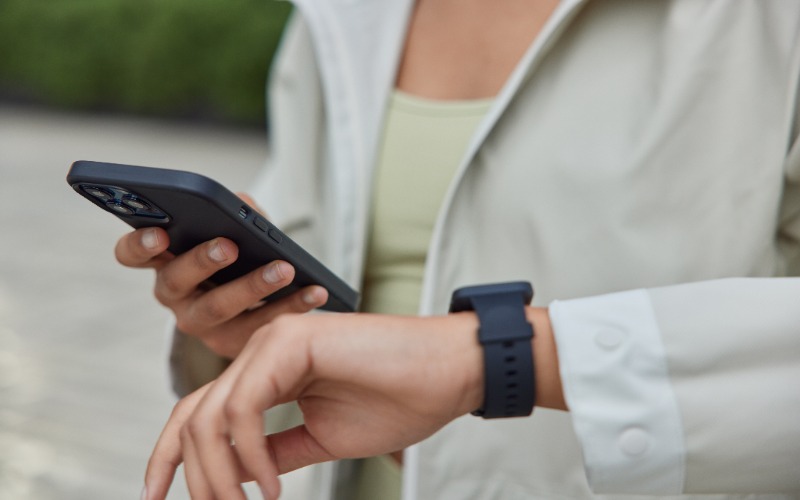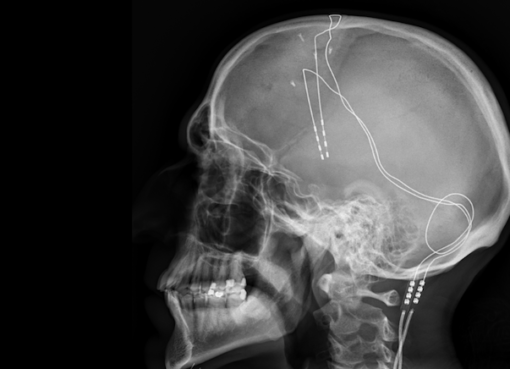Clinicians turn to wearable devices to prescribe exercise programs

Health wearable devices are quickly becoming a staple of daily fitness and wellness routines as more people turn to technology to improve their lifestyle. These devices track your steps and monitor your heart rate.
Now, healthcare professionals use them to prescribe specific physical activities tailored to your personal health goals. This innovative approach delivers a personalized fitness plan right from your wrist. It helps you achieve optimal health results with scientifically supported recommendations.
The growing trend
Wearable devices are more than just popular: they’re revolutionizing the way people manage their health and fitness. By 2023, approximately 35% of women and 34% of men in the United States have adopted these gadgets. They incorporate them into their daily routines to track wellness and fitness metrics.
The magic happens when medical and fitness experts leverage this technology for personalized exercise prescriptions. They use information from your device to design workouts tailored to your specific health needs, turning raw data into actionable health advice.
This trend will only become more pronounced. Experts estimate that wearable technology will register a compound annual growth rate of 14.6% between 2023 and 2030. It is the future of personal health management, putting the power of data on your wrist.
Benefits of wearable devices for healthcare
Wearable technology provides patients and practitioners with powerful tools to monitor and manage health. Here are its benefits that are revolutionizing the way people approach wellness and disease prevention:
Motivation and commitment
Health wearables go beyond monitoring: they motivate users. Imagine receiving real-time feedback and earning rewards when you achieve your fitness goals. One study found that 83% of people felt more motivated to stay active when their wearable devices sent them signals.
It turns routine exercises into a fun and engaging game. This gamification makes sticking to your health goals rewarding and enjoyable. It motivates you to have a healthier lifestyle with each achievement.
Personalization
Wearables allow you to have a fitness plan worked out down to the smallest detail. Your doctor can tailor exercise prescription guidelines to your unique health needs and goals. Whether you’re losing weight, building strength, or improving your heart health, these smart gadgets analyze your daily activity and physiological data to help you create a personalized workout program.
This tailored approach ensures that every sprint, squat and stretch is optimized for your body’s needs. It maximizes the effectiveness of your fitness efforts and keeps you on track to achieve your wellness goals.
Data tracking and management
Wearable health devices are like having a personal health assistant at your fingertips. They monitor vital signs such as body temperature, blood pressure, heart rate and falls. This constant vigilance allows them to detect significant changes in your health parameters. This allows for rapid interventions that can prevent complications.
Doctors can monitor patients’ conditions in real time and adjust treatments if necessary. This level of continuous observation allows chronic diseases to be managed more effectively. It also improves overall health outcomes by informing patients and their healthcare team every step of the way.
Potential disadvantages
Although wearable health devices offer significant benefits, they present challenges that users need to pay attention to. Here are potential limitations that users should understand to navigate the complexities of this technology:
Privacy issues
One of the biggest ethical concerns about wearable technology is how it collects and stores your data. Although these devices collect detailed information about your health and activities, you cannot ignore the risks associated with data sharing and potential breaches. Understanding who has access to your data and how they protect it is essential.
This awareness is crucial because, without robust security measures, sensitive information about your health could fall into the wrong hands. This could lead to privacy violations and potentially serious consequences. Being informed and vigilant about your mobile device’s privacy policies will help protect your personal information.
Technology Addiction
Wearable health devices are incredibly useful, but there’s a risk in relying too much on them to manage your lifestyle. Although these devices provide valuable information and data, they do not replace professional medical advice or the human touch of healthcare providers.
You should maintain a balanced perspective and use wearable devices as one of the many tools in your health arsenal. Remember, technology can support your lifestyle decisions, but shouldn’t make them for you. Stay engaged in your overall health by combining the convenience of wearable devices with regular check-ups and consultations with healthcare professionals.
Accuracy and reliability
Health wearables are convenient for tracking your fitness and wellness metrics. However, it is crucial to be aware of their limitations, especially in terms of accuracy. One study showed that the absolute error in data from these devices can be 30% higher during physical activity than when you are at rest.
This gap means that while general trends and patterns can help you understand your health, specific numbers can only sometimes be precise. It is wise to use this information as a general guide rather than an exact measurement. Additionally, consultation with healthcare professionals is always vital for accurate health assessments and advice.
Harnessing technology for better health outcomes
As you think about integrating technology into health and fitness, it’s clear that wearable devices can play an important role in your journey to better personal health management. These devices allow you to take control of your well-being in ways previously unimaginable. While not without drawbacks, the overall trajectory points to a future where technology and healthcare will be increasingly intertwined.
Learn how wearable technology can fit into your health routine and experiment with different devices to see which one best fits your health goals and lifestyle.



Leave a Comment